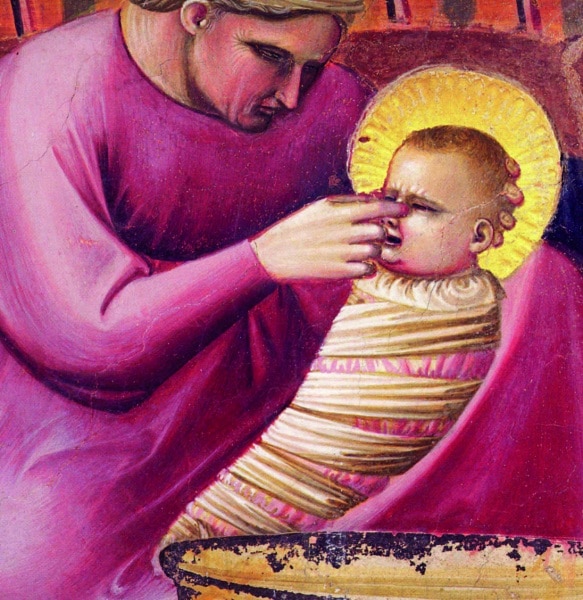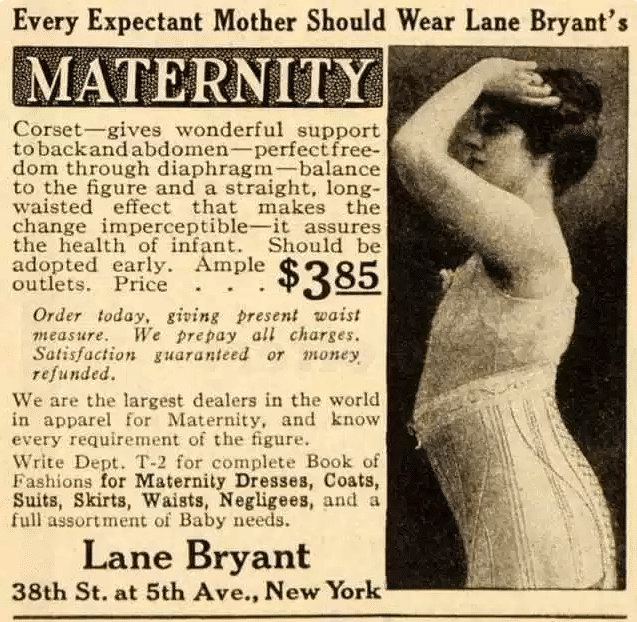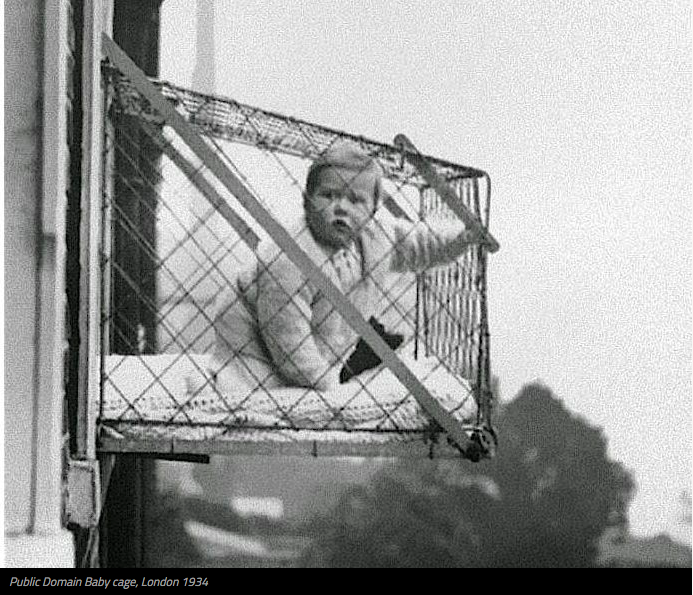As we face our daily barrage of information from Social Media and blogging of all kinds (like this :), it seems everyone wants to share their knowledge and experience so that everyone else can learn from it, good or bad, and the world can be a better place. It seems we are finally at the point of knowing everything there is to know. We just need to read about it and apply! Simple huh? But sometimes I imagine future generations looking at this ocean of “knowledge” and giggling “they did what!!!”
Look at some of the strangest child-related beliefs and customs that now, fortunately, belong to the past.
Starting from the beginning in ancient Greece: the preformationism. Developed by Pythagoras and Aristotle (OK, let’s cut them some slack – they did get some things perfectly right!), this theory stated that all creatures developed from smaller versions of themselves. These smaller versions were contained somewhere in the world since the beginning of time. Following the Greek philosophers, medieval Europeans believed that sperm contained very small but completely formed children, and the mother was just a kind of “incubator” where the father’s creation could grow until ready to be born. It was also considered possible to get pregnant multiple times when already pregnant.
As an “incubator”, women were considered fully responsible for the good outcome of pregnancy. However, without reliable pregnancy tests, they often wouldn’t discover they were pregnant until about the 5th month when they could feel movement or see their belly growing. The absence of menstruation wasn’t considered as being related to pregnancy, as there could have been other reasons such as breastfeeding other children or malnutrition.

Giotto di Bondone, The Birth of the Virgin (detail), 1304-06, Fresco, Cappella Scrovegni (Arena Chapel), Padua
Diet during pregnancy was considered very important but not in the way it is now. Medieval people believed that it could influence the sex of a child. Indeed, I personally assisted in a conversation with a Tibetan nomad young woman (this was 2006, and she possessed a TV!) who, when asked about her new born child sleeping in the cot, “Is it a boy or a girl?” was not sure about the answer. She said: “Well, it used to be a boy, but I ate too much meat when I was pregnant, so… it became a girl”.
New-born babies in medieval times were believed not to have developed feeling yet and therefore would not feel pain till a certain age. Even until quite recently it was also considered right to wrap new born babies very tightly almost so that they could not move. This treatment was due to the idea that otherwise their bones could get deformed because they were still not strong enough.
New-born babies in Medieval times were believed not to have developed feeling yet and therefore would not feel pain till a certain age. Even until quite recently it was also considered right to wrap new born babies very tightly almost so that they could not move. This treatment was due to the idea that otherwise their bones could get deformed because they were still not strong enough.
It sounds absurd now, but pregnant women used to wear corsets till not so long ago.
In olden Russia it was a custom to use cow or goat milk produced after the animals had eaten some specific herbs (like absinthe) to calm babies down. (This surely was based on sound observational science but happily is no longer practiced.) In some nomadic countries like Mongolia, until very recent times, even little babies would be securely tied to a horse so that they would sleep happily while feeling slight movement and warmth, leaving the mother free to take care of other children or her home.

Vintage Lane Bryant ad via The Daily For Blog
More recently, in the first half of 20th century, most of the above customs were considered absurd and abandoned and replaced with a milder approach to childhood. As early as in 1919 Janusz Korczak, an enlightened Polish-Jewish educator and children's author, stated that:
“Children are not the people of tomorrow but people today. They have a right to be treated by adults with tenderness and respect, as equals.”

Still even then, some things that parents in good faith did to their children were very strange to the modern view. In the same decade in of the above quotation, the US post office used to accept children to mail – usually to their relatives. The first child to be shipped was an infant going to his grandmother who lived just a mile away. However, happily and unlike what one might imagine, the children weren’t packaged, boxed, stamped and stored but were accompanied by postal workers, walking and traveling on trains. This rather quaint practice was ended by an addition to the rules of the US post in 1914: “No humans”.
Decades later, perhaps an even stranger practice was embraced by many parents, as a consequence of a logical and probably correct idea: Fresh air is generally good for children’s health. Some people took that to the letter, and outdoor cages for children became a popular parenting tool. As in the picture, it was a metallic structure to install outside the window and leave your child in it to sleep better. And get rosy cheeks.
Connected to the above, although less extreme, was the conviction of the health benefits of exposure to the sun’s rays. There was little knowledge of ultraviolet rays and the damage it can cause to human skin, so little children were left in the sun, often naked or with few clothes on. Perhaps even to this day, awareness of risks of exposure to the sun is not as high as it should be.
So, who knows, but maybe what we think is 100% proved and established as fact will seem absurd to our grandchildren. I know where I’m putting my money. But looking back at all these curious and sometimes terrifying beliefs and customs, it seems a miracle that humans survived!
I only mentioned some European curious beliefs mainly from Medieval times, but this list surely could be pages and pages long. I would write more but I need to go ask my mom why she ate too much meat while pregnant with me! 🙂
